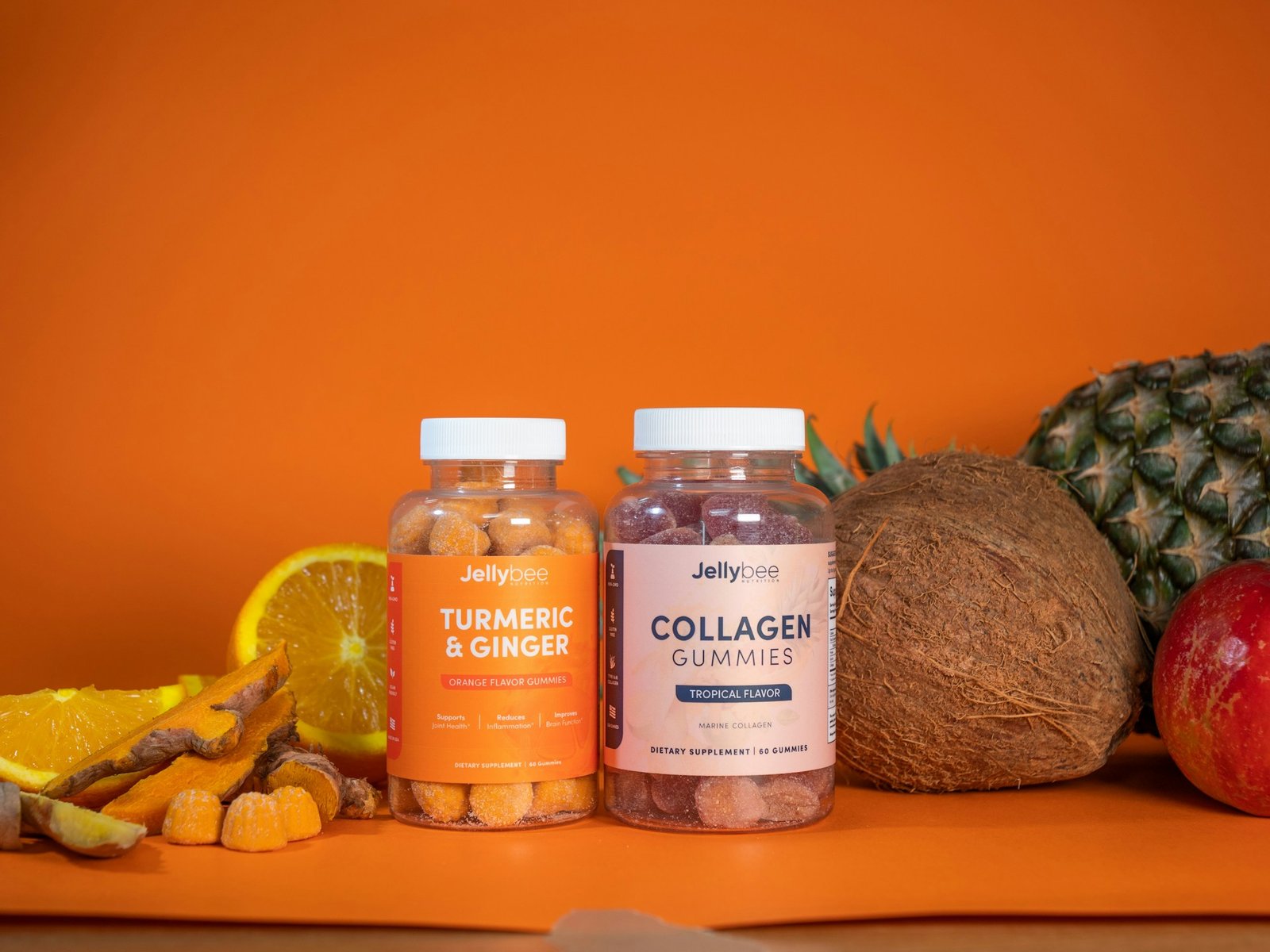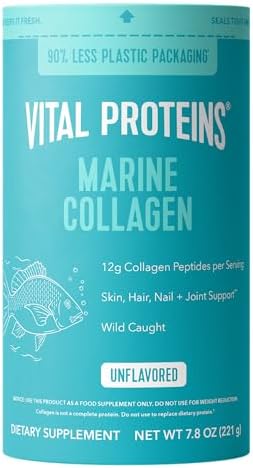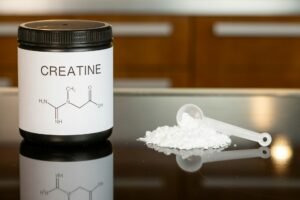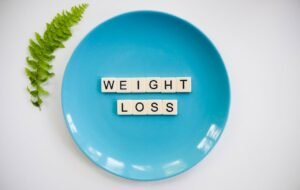Collagen is a major buzzword in the fitness and wellness space—and for good reason. It’s a key protein that supports skin, joints, muscles, and more. But with so many collagen options available, one question keeps popping up: Marine Collagen vs bovine collagen—what’s the difference, and which one is better for you?
If you’re into home fitness, lifting, or general wellness, this comparison breaks down the essential facts so you can make an informed choice.
Disclosure: We may earn a commission from links mentioned in this post, at no extra cost to you. We only recommend products we genuinely trust
Table of Contents
Quick Comparison: Marine Collagen vs bovine collagen
If you want joint recovery, support for ligaments and tendons, and a collagen that pairs well with lifting or resistance training, bovine collagen is a solid choice. It contains both Type I and Type III collagen, which makes it more complete for musculoskeletal support.
If your goals are more skin-focused—like boosting glow, hydration, or reducing fine lines—or if you’re pescatarian, marine collagen might be the better pick. It’s rich in Type I collagen and often absorbs faster.
Features
Bovine Collagen is made from the hides and bones of cows and typically contains both Type I and Type III collagen. These types support not just skin, but also tendons, ligaments, and muscle repair. It’s especially popular among lifters or those recovering from injury due to its high content of hydroxyproline, an amino acid essential for connective tissue strength.
Marine Collagen is sourced from fish skin and scales. It contains mostly Type I collagen, which is the most abundant collagen in the body and is heavily associated with skin health—improving elasticity, hydration, and fine lines. It’s also praised for its smaller peptide size, which may allow for faster absorption in the digestive system.
Both types are often hydrolyzed (aka “collagen peptides”), meaning they’re broken down for easier digestion and absorption.
How They Perform in Real Life
Feedback from users varies depending on goals. Those prioritizing joint support and post-workout recovery often lean toward bovine collagen, especially for strength training or high-volume home workouts. Its combination of Type I and III collagen, along with higher hydroxyproline levels, makes it a strong option for supporting tendons and ligaments.
In contrast, many people using marine collagen report noticeable improvements in skin hydration, texture, and even digestive comfort. Because it absorbs quickly and has a lighter profile, it’s popular among those focused on skin health, gut function, or maintaining collagen levels during calorie-restricted diets.
Results often depend on individual needs and biology—some people benefit more from one type, while others see the best results by switching between or combining both.
Pricing
Bovine collagen is generally more affordable and widely available in bulk tubs or large bags. You’ll often find good deals from reputable brands, especially if you’re okay with unflavored powders.
Marine collagen tends to be more expensive due to the sourcing and production process. Since it’s derived from fish, it’s considered more premium and often sold in smaller containers. That said, some people feel it’s worth the extra cost for skin-focused benefits or pescatarian-friendly labeling.
- Bioavailable Collagen Peptides Powder —- Our Marine Collagen is made from the scales of fresh, non-GMO, wild-caught wh…
- Health Beneficial —- Marine collagen peptides can be digested and absorbed by the body quickly for maximum benefits. H…
- Easy to Use —- Soluble in hot or cold liquids, including coffee, smoothies, and tea. 1-2 scoops a day is all you need!…
- ✅ STRUCTURAL STRENGTH – Harness the abundant type 1 and type 3 collagen peptides powder to provide crucial support for y…
- ✅ YOUTHFUL SKIN, REVEALED – Get this multi collagen capsules to experience improved skin elasticity and hydration, effec…
- ✅ JOINT SUPPORT SUPREME – Say goodbye to joint pain and stiffness as our bovine collagen capsules stimulates the product…
Pros & Cons
Bovine Collagen
Pros:
- Contains both Type I and Type III collagen, supporting joints, ligaments, muscles, and bones
- High in hydroxyproline, which helps build strong connective tissue
- More affordable and widely available in bulk
- Supports post-workout recovery and joint mobility
Cons:
- Not suitable for people avoiding beef or following certain dietary or religious restrictions
- Less effective for skin-specific benefits compared to marine collagen
Marine Collagen
Pros:
- Contains pure Type I collagen, ideal for skin, hair, and nail support
- Smaller peptides for potentially faster absorption
- Pescatarian-friendly and free from red meat sources
- Often easier on the stomach and mixes well into drinks
Cons:
- Typically more expensive than bovine collagen
- Lacks Type III collagen, making it less comprehensive for joint and tissue recovery
- Limited availability in bulk-size containers
Alternatives
If neither marine nor bovine collagen fits your lifestyle or budget, you have a few alternatives:
- Vegan Collagen Boosters: These don’t contain collagen but include nutrients like vitamin C, biotin, silica, and amino acids that help your body produce its own collagen. Good for plant-based users, but not as direct.
- Multi-Collagen Blends: Some supplements combine marine, bovine, chicken, and egg-sourced collagens to offer Types I, II, III, V, and X for broader support.
- Bone Broth Protein: Naturally high in collagen, bone broth powders are another whole-food-based alternative that supports skin and joints.
Performance, Recovery, and Lifestyle Fit

When it comes to lifting, bodyweight training, or joint-heavy workouts like calisthenics or cycling, bovine collagen is a better match. It offers more joint and connective tissue support, which translates well to recovery and long-term joint health.
If your goals are more beauty- or gut-related, marine collagen has a clear edge. It’s often used during cutting phases or low-calorie periods, where digestion and skin care are top priorities.
Also consider lifestyle fit—marine is better for pescatarians, while bovine usually works best for omnivores looking for value and results.
In addition to collagen, many fitness enthusiasts also consider supplements like creatine for muscle recovery and strength gains. If you’re curious about which form of creatine to choose, check out our detailed comparison of Creatine Monohydrate vs Micronized Creatine to find the best option for your workouts.
Conclusion: Who Is the Winner?
There’s no one-size-fits-all winner here—it really depends on what you’re looking to get out of your collagen supplement.
- Choose bovine collagen if you’re focused on recovery, joint support, muscle strength, or want the best value for general fitness.
- Choose marine collagen if your focus is clearer skin, faster absorption, digestive ease, or you follow a pescatarian diet.
For those wanting comprehensive benefits, some choose to cycle between both or go with a multi-collagen supplement. Either way, consistency is key—collagen takes time to build up in the body, and results become more noticeable after regular use.








Pingback: Carnivore Diet Food List: 7 Essentials for Home Fitness
Pingback: 6 Best Natural Pre Workout Options for Energy
Pingback: BCAAs vs EAAs: Choosing the Right Amino Supplement
Pingback: 3 Best Functional Trainers for Your Home Gym Setup
Pingback: 7 Powerful Insights on L carnitine vs creatine Which Is Best
Pingback: SAID Principle: Boost Fitness Results Fast